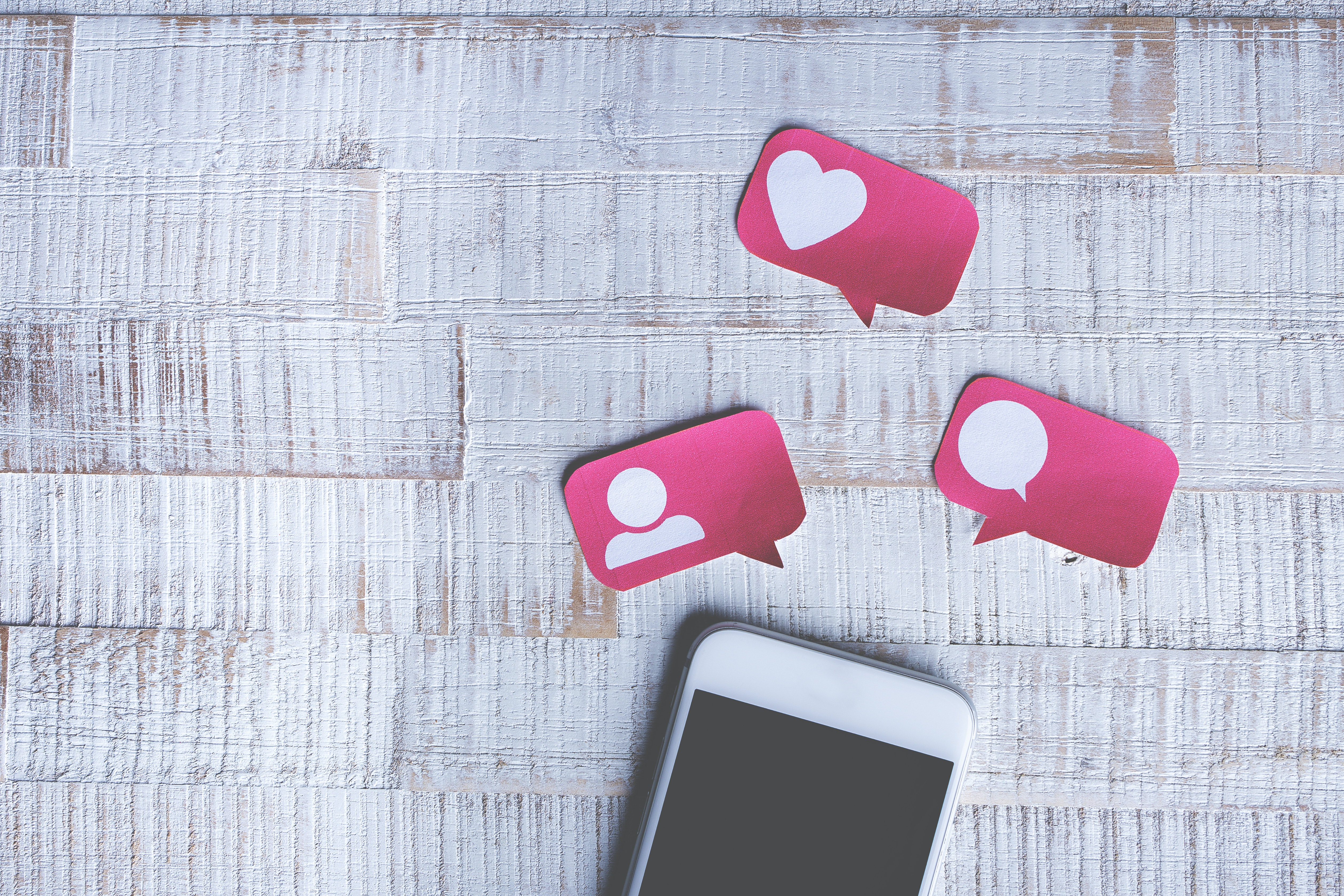10 Tips on How to Use Social Media Responsibly
Using social media responsibly is important at any age. Most children start using their first phone at the age of 11, the years of early adolescence. During this time, kids are still developing cognitively and are beginning “to understand that what they do now can have long-term effects.” Many things can have long-term effects on this child’s life, one of them being their activity on social media. That is, teens need to realize the impact their digital footprint can bring. As a result of their online activity, the information about a particular person could exist on the internet.
Therefore, parents, guardians, and older siblings should talk with these adolescents. More specifically, they can remind teens to follow certain social media etiquette or behaviors when using these platforms. This article provides 10 ways for kids, or users of any age, to use social media in a respectful, safe, and beneficial way.
Why Using Social Media Responsibly is Important
Using social media responsibly is essential for many reasons. As mentioned before, your digital footprint is a very real part of using the internet and can follow you throughout your entire life. Something you may have tweeted years ago might prevent you from getting a future job or opportunity you apply for one day. Studies state that 80% of employers and recruitment agencies review a candidate’s social media content and use it as part of their deliberation process.
Proper social media use helps keep your reputation clear but also helps people stay safe. Parents must instill healthy social media habits in their children to prevent them from interacting with dangerous people, sharing harmful posts or comments, and more. To learn more, keep reading!
10 Tips on How to Use Social Media Responsibly
1. Think Before You Type
Have you ever heard the phrase, “think before you speak?” Well, this idea can also extend to your social media use. Stopping to think about what you are typing or posting can be very helpful for maintaining healthy and proper social media use.
For example, someone with anger issues may benefit from pausing before they type. If someone angers you online and your temper starts getting the best of you, put your phone down and walk away for a minute. Think about what you are planning to say:
- Is this person or post worth my response?
- Will my comment open or continue a healthy discussion, or will it feed into internet hate or pointless back-and-forths?
- Can I deal with this situation in person? Should I talk to my friend when I see them next about their post that upset me when I’m calmer and able to be more civil?
- Does typing behind a screen make me say things I wouldn’t actually say in real life? Do my typed words match who I am daily?
- Should I even say anything? Will my commenting or creating this post do anything useful to the situation? Is it my place to get involved?
Sometimes, people say things they regret because they were too quick to message someone back before thinking about the consequences of their words. Social media users need to remember that once they say something, especially online, we can’t undo our words. Of course, you can apologize and change your opinion, but sometimes the things we type in anger can have lasting effects.
2. Go Against CyberBullying
Online bullying can be just as harmful as in-person bullying; some may say it is even worse! In the past, if you were bullied in school, you may have felt some relief being home away from the insults thrown at you in the halls or classrooms. The expansion of social media use has expanded the chances of bullying from behind a computer screen. DoSomething, a non-profit that promotes advocacy in young people worldwide, reported some alarming facts about cyberbullying. Here are some that stuck out:
- About 37% of young people (ages 12 and 17) have experienced cyberbullying
- 23% of students reported doing or saying something mean or cruel to another person online
- High rates of LGBTQ+ students experience online harassment
As mentioned before, thinking before you type or post something online is crucial to using social media responsibly. Something that could have taken you 3 seconds to type may stay with someone for the rest of their lives. Focus on spreading kindness or positivity on your platforms instead of hate.
If you are cyberbullied, know that you are not alone! Please reach out to your support system, family members, and friends for help. If you are younger, let a responsible adult know what is going on online. If you are a parent, remind your children that you are there to help them if anyone is ever bullying them in person or online.
3. Do Your Research and Share Helpful Information
Sometimes, you may want to engage in a discussion online that you don’t know much about. It is usually best to take a step back and learn more about the topic before getting involved; otherwise, you may end up looking ill-informed.
You can learn from educated people you admire through podcasts, Youtube videos, Ted Talks, articles, etc. Also, do your own research by reading articles, news reports, or textbooks.
If you want to advocate or be an ally to specific communities, you can uplift their voices by reposting their content or sharing their posts – help make space for the people you want to support.
4. Recognize That Hate isn’t Funny
Many people that get called out for their offensive or hateful tweets or posts excuse their actions by saying, “it’s just a joke!” A joke shouldn’t have to be at somebody else’s expense to be funny. Commenting an offensive joke about someone’s body, race, sexuality, disability, or religion is not worth the few likes you might get on a Tiktok or youtube video. You may think, “it’s just a joke” or “edgy humor,” but you are actually contributing to someone else’s pain or furthering harmful stereotypes or stigmas.
Furthermore, your jokes may end up catching up to you. Many people lose jobs or admissions to universities because of their past hateful comments or posts. Watch what you post online and focus more on uplifting or defending people from hate, not continuing it.
At lease, be aware of your audience. Consider who might be viewing your posts, and adjust your behavior accordingly. Overall, avoid posting anything that could be considered offensive or inappropriate.
5. Be Aware of Social Media Addiction
As we know, spending too much time on social media can have negative consequences on our mental and physical health, relationships, and productivity. Generally speaking, social media addiction is a behavioral addiction that shares many similarities with other types of addiction, such as substance addiction. In particular, social media addiction among teenagers could be more prevalent and have many negative impacts.
Symptoms of Social Media Addiction:
- Excessive use of social media
- Difficulty controlling social media use
- Spending more time on social media than intended
- Neglecting important responsibilities and obligations due to social media use
- Using social media as a way to cope with stress or negative emotions
- Experiencing withdrawal symptoms when unable to access social media
- Continuing to use social media despite negative consequences
Tips to Manage Social Media Addiction
- Assess your social media use: The first step in overcoming social media addiction is to assess how much time you spend on social media and how it’s affecting your life. Keep track of how much time you spend on social media and what you’re doing while on it.
- Create a plan to reduce your social media use: Once you’ve assessed your social media use, create a plan to reduce the amount of time you spend on social media. Set specific goals and create a schedule for when you will use social media.
- Set boundaries and limits on your social media use: To overcome social media addiction, it’s important to set boundaries and limits on your social media use. Turn off notifications, limit the number of times you check social media, and set a time limit for each session.
6. Practice Internet Safety
Internet safety is critical to instill in yourself and younger generations; it is a major part of using social media responsibly. Here are some tips:
- Be careful about posting where you are
- Many people suggest posting photos or statuses until after you leave the place or location
- Don’t share personal information, especially with strangers
- Guard your account information, address, place of work, etc.
- Don’t believe everything you see or read
- Some people may portray themselves as someone they really aren’t; this can happen, especially with online dating. Read this article to learn more
- If you are a parent, think about the risks of sharing your child’s photos on social media
- Many people with children, even celebrity parents, have been hiding their children’s faces online when sharing photos. While some parents don’t share pictures of their children at all
- The safety of your child can be at risk when posting their photos publicly; unfortunately, there are many people online with dangerous intentions
- With the rise of “social media influencers,” we have also seen the rise of “family influencers;” many children have been posted online to millions of viewers since the day they were born
- If you want to share photos of your children, consider making your platforms private and only to people you trust
7. Think About the Long Term
Don’t jump on any internet bandwagon until you’ve considered the information yourself. Many people don’t look at the whole picture of the situation and only rely on the few posts or tweets they see. Take time to think to yourself:
- Will this post-age well?
- Will I probably agree with this post in the long term?
- Does this post or tweet align with my morals?
- Would I be embarrassed if someone brought this up to me in the future or in-person?
- Do I want this as part of my digital foot-print?
8. Maintain a Healthy Following List
One way to have a better experience on social media is to follow and interact with users suited for you. Follow people who share similar interests, inspire you, make you think, or make you happier after viewing their content.
Remember that it is okay to unfollow people who make you feel bad about yourself. You are in charge of your social media – follow people YOU want to follow. If you are a parent, especially of younger kids, keep an eye on who your children follow and encourage them to follow age-appropriate creators.
9. Don’t Assume Anonymity
Some people may feel they can say anything they want behind their computer or phone screen. Don’t assume anonymity or that you can say whatever you want without consequences. Be careful with what you say – a good rule of thumb is: don’t say anything you wouldn’t say in person or offline.
10. Take a Break from Social Media
Actually taking a break from social media and unplugging can be a healthy practice. There is a world outside of social media and taking time to see people in person, appreciate nature, practice hobbies, and recharge (like our phones do) with self-care is essential. If you have young kids, remind them of this idea and help engage them with activities offline.
Therapy Can Help
If you struggle with using social media responsibly, anger issues, bullying, or anything else mentioned in this article, reach out to the Mind Connections team – we want to support you! Therapy can help you deal with any stressors social media may cause and learn how to cope healthily. Call now!
Content Creator, Victoria Gallo; Reviewed by Dr. June CaoUsing







thank you pour ce grand blog de données. J’avais la coutume d’être
à la recherche de cette information pour ma visée.